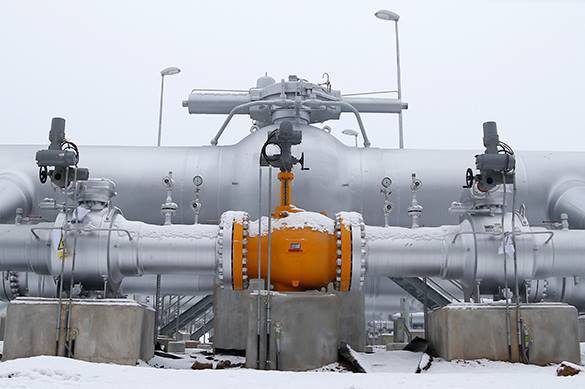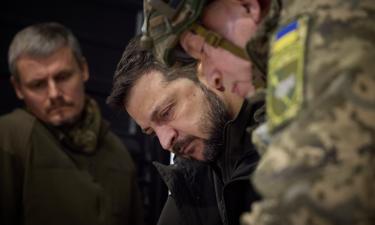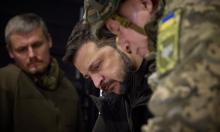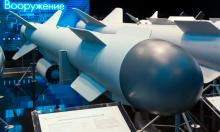Economic war between Russia and Turkey: Who wins?
What is going to happen to the relations between Russia and Turkey after the downing of the Russian jet above Syria? What will happen to large energy projects between the two countries? Pravda.Ru talked about it with director of the Center for Policy Analysis and Strategic Studies, Yevgeny Gnilomedov.

Russia strikes most painful blow to Turkey
"How can you describe the current state of affairs in the Turkish economy? Turkey has recently conducted a series of economic reforms, and the economy of Turkey has been demonstrating growth against the backdrop of European stagnation."
"Generally speaking, the Turkish economy has been showing fairly significant growth during the recent years indeed. Many people, especially in Russia, believe that tourism plays the leading role in the Turkish economy, but this is not true to fact. The tourist market accounts for about eight percent of Turkish GDP. The rest falls for the well-developed tourist industry, services and agriculture.
"Therefore, in response to the incident with the Russian aircraft, Russia put emphasis on the sphere of agriculture in its sanctions against Turkey. Speaking of imports and exports in the relations between Russia and Turkey, Russia mostly exports raw natural resources. It goes about the Blue Stream project and crude oil. As for the Russian export, Russia buys large volumes of grain.
"Owing to its geographical position, Turkey has several harvest seasons in a year. Russia was counting a lot for Turkey in connection with Russia's food embargo of EU products. We assumed that Turkey could help us at this point."
"What is going to happen to the Turkish Stream project? What interests did we have in the Turkish Stream?"
"Russia's interests in the project were enormous. Russia hoped that Turkey would become a major hub for the transportation of natural gas from Russia to Europe. Turkey is Russia's second largest consumer of natural gas after Germany. About 60 percent of all natural gas that Turkey consumes comes from Russia. The rest comes from Iran, Azerbaijan, Qatar and Algeria.
"The relations between Russia and Turkey have been developing gradually during the recent ten years. In 2005, the Blue Stream project was launched - the Blue Stream marked the beginning of Russia's energy cooperation with Turkey.
"The cooperation was developing steadily: Russia was building electric power plants, Russian oil giant Lukoil is running a large network of gas stations in Turkey, Gazprom operates electric power plants. Turkey was highly interested in the project because Russia was covering all the costs for the Turkish Stream. All Turkey had to build was a short leg of the pipeline on the ground to the Greek border."
Russian natural gas is strategic fuel for Turkey
"Was Turkey interested in these projects as much as Russia was?"
"Turkey was supposed to become a major hub for the transfer of energy from the Caspian Sea, the Middle East and North Africa to Europe. Turkey would have ensured its need in energy completely. Russia was offering very good conditions to Turkey, but the Turks like to bargain.
"Turkey now has to decide how to replace the Russian gas. The Turks have tried to do it before, although to no avail. Sixty percent is a serious number. Davutoglu has already visited Qatar and Azerbaijan in an attempt to find a solution to the problem, but this is not an easy nut to crack. Azerbaijan does not give as much gas as Turkey needs. As for the liquefied gas, there are only two LNG plants in Turkey. The Turks want to build more, but at someone else's expense.
"The main problem that Turkey is now facing is how to receive natural gas. Let's start with the Azerbaijani oil and gas. There is "Baku-Tbilisi-Ceyhan" oil pipeline that goes via Tbilisi, Georgia. There was a military conflict between Georgia and Russia, and then color revolutions started happening in the Middle East one after another.
"There is the Arab gas pipeline that goes from Egypt via Syria. They wanted to extend it to Turkey, but Assad refused to build it. Assad has another project known as the "Islamic gas pipeline" - Iran, Iraq and Syria. There is also another pipeline that runs from Iraq. There is also "Kirkuk-Ceyhan" oil pipeline that runs to Turkey, and there is also "Kirkuk-Bayanis" pipeline to Syria.
"It appears that all those conflicts and revolutions were based on power economy."
"Of course, fuel plays a central role in the region, but it is also a question of geopolitical influence."
"Russian Prime Minister Dmitry Medvedev set the goal to make Russia's sanctions as much painful as possible for Turkey and as least painful as possible for Russia. Can Turkey hurt the Russian economy?
"Turkey has already started detaining Russian vessels that carry grains and oil, but Turkey can not cause considerable damage to Russia. Russia needs to take advantage of this situation while Turkey feels guilty for what it has done. I doubt that Turkey may become a friend of Russia again, but Turkey can become our economic partner."
Pravda.Ru
Read article on the Russian version of Pravda.Ru
Subscribe to Pravda.Ru Telegram channel, Facebook, RSS!





